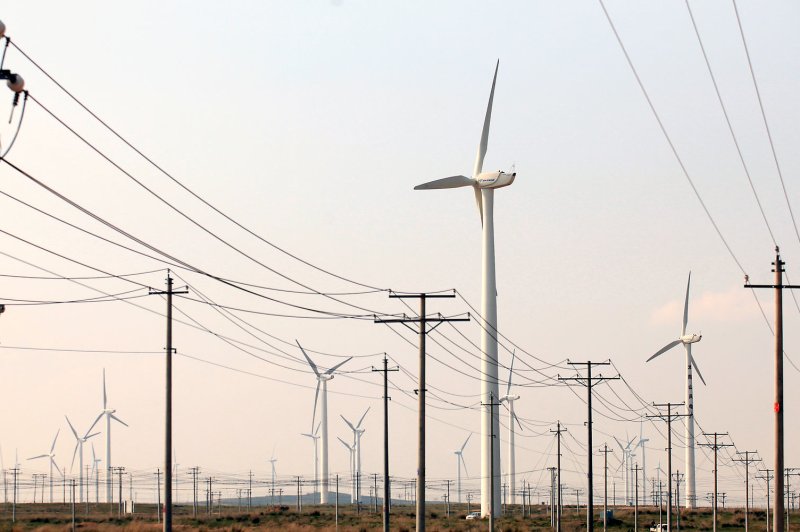Today's ENERGY News
March 29, 2016

March 29, 2016

Saudi Economy Shows Deepening Signs of Strain as Spending Drops
M3 shrinks in Feb. from a year ago for first time since 2000 The Saudi economy is showing deepening signs of strain under the weight of cheap oil. Saudi consumers withdrew and spent less money in February, according to central bank data released on Monday. M3, one of the broadest measures of money supply, shrank for the first time since at least 2000, when Bloomberg started tracking the data. While the kingdom still has one of the world’s largest foreign-currency reserves, cuts in government spending to shore up public finances are taking a toll on the economy. Growth may slow to 1.5 percent this year, according to the median estimate of a Bloomberg survey, the slowest pace since at least 2009. Saudi officials have repeatedly said that the nation can weather the slump in oil prices. Cash withdrawals through ATMs fell 8 percent after expanding for at least the...
Get house in order, World Bank tells Iraq
U.N. Secretary-General Ban Ki-moon, center, and Iraqi Prime Minister Haider Al-Abadi, right, review economic threats in the era of terrorism and lower crude oil prices. U.N. Photo by Mark Garten BAGHDAD, March 28 (UPI) — Faced with threats from terrorism and low oil prices, the world community is ready to help, but Iraqis make take initiatives, the U.N. secretary-general said. U.N. Secretary-General Ban Ki -moon joined the heads of the World Bank and the Islamic Development Bank in expressing solidarity with Iraqi leaders struggling to ensure financial and national stability. From Baghdad, the secretary-general said he was calling on regional and international partners to help support a threatened Iraq, though the Iraqis themselves needed to take responsibility to resolve crises. “These reforms must include measures to empower women and young people, and to bring [about] greater social cohesion,” Ban said in a statement . Iraq’s $200 billion economy is...
Saudi Arabia loses oil market share to rivals in key nations
Saudi Arabia lost market share in more than half of the most important countries it sold crude to in the past three years, even as the kingdom increased output to record levels. The world’s biggest oil exporter lost ground to rivals in nine out of 15 top markets between 2013 and 2015, including China, South Africa and the US, according to an analysis of customs data. Saudi Arabia set itself a goal in late 2014 of maintaining its crude market share amid a glut that prompted a collapse in oil prices, but the imports data compiled by FGE, an energy consultancy, suggest the country’s strategy suffered setbacks in some of its key customer countries last year. Other data show that Saudi Arabia achieved a limited increase in global market share in 2015 compared to 2014, although last year’s figure was lower than that recorded in 2013. “Saudi Arabia has had a very difficult time selling oil in this environment,” says Ed Morse, an analyst at Citigroup. “Its rivals are going into a very crowded market in a very aggressive way.”
A look at the Fukushima and Chernobyl nuclear disasters
Japan this month (March) marked the fifth anniversary of the Fukushima nuclear disaster with a series of sombre remembrance ceremonies across the country. At 2.46pm local time (1.46pm in Singapore) on March 11, 2011, a 9.0-magnitude earthquake struck under the Pacific Ocean, triggering a 10 metre wall of water that devastated the north-eastern coast of Japan. It caused meltdowns in three reactors at the Fukushima Daiichi (No. 1) Nuclear Power Plant in the worst nuclear accident since the Chernobyl accident on April 26, 1986. Ahead of the 30th anniversary of the Chernobyl tragedy in April, The Straits Times takes a close-up look at both disasters. HOW MANY PEOPLE WERE AFFECTED? Fukushima: Some 18,500 people died or are still missing from the earthquake and tsunami. Another 470,000 people were evacuated due to the nuclear fallout. They include those who live within a 20km radius from the Fukushima No. 1 nuclear […]
Momentum building behind U.S. wind energy
U.S. wind energy advocates scored a second victory after the federal government gave its support to a transmission line to service the wind power sector. For the first time, the Department of Energy used authority mandated by the Energy Policy Act of 2005 to foster cooperation between the private and public sectors on new electricity transmission projects by joining a line slated for the U.S. South. The development, led by Clean Line Energy Partners, is aimed at bringing up to 4,000 megawatts of power generated from wind in Oklahoma and Texas through a 705-mile power line that would serve the energy needs of up to 1.5 million homes in the region. Simon Mahan, a director for […]

No comments:
Post a Comment